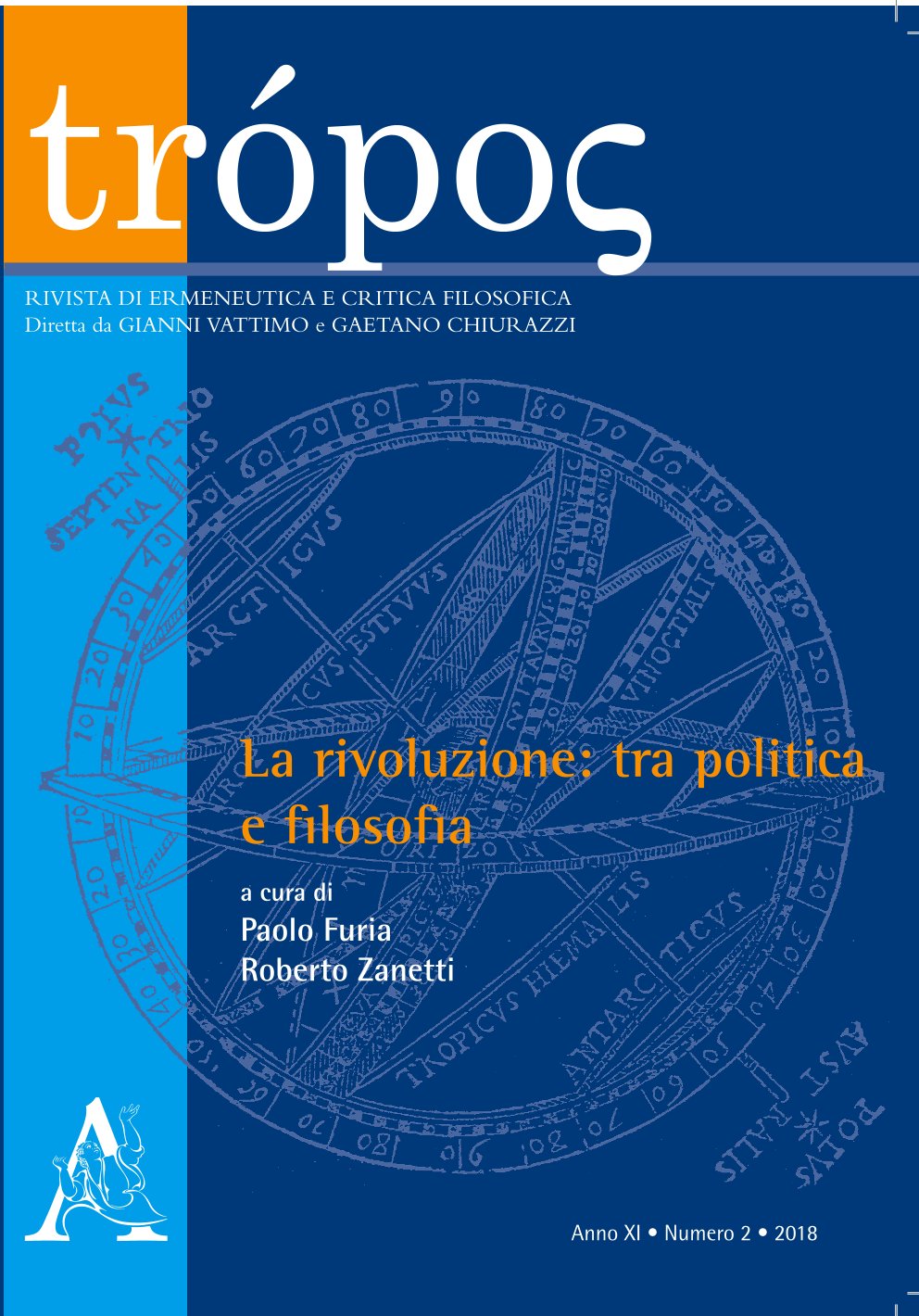Ricoeur and the Existentialist Threat to Revolutions
DOI:
https://doi.org/10.13135/2036-542X/8133Keywords:
Ricoeur, existentialism, revolution, violence, prophetAbstract
Inspired by Gabriël Marcel and Karl Jaspers, Paul Ricoeur’s Philosophie de la Volonté (1950/1960) develops a particular approach to existentialism emphasizing that freedom and nature are not opposites, but rather paradoxically connected by means of the notions of vocation and commitment. Ricoeur presents a kind of ‘tragic optimism’ in which the human being is characterized as a fallible creature that, nevertheless, succeeds in exchanging fear for hope, based on the original affirmation of his existence. This article explains how Ricoeur’s position relates to the mainstream existentialist understanding of revolutions. I argue that Ricoeur uncovers an existentialist threat to revolutionary action in his reflections on Maurice Merleau–Ponty’s Humanisme et terreur (1948) and Albert Camus’s L’homme révolté (1951). This threat concerns the political danger of freedom without transcendence. If the existence for itself transcends any givenness, then it also transcends that which cannot be transcended or should not be transcended. Then freedom lacks the firmness of respect for human dignity as that which cannot be negated. That is why revolutionary action needs prophetic input — as a constant reminder of the primary affirmation of the absolute value of the human person — if it is to avoid nihilistic violence.



